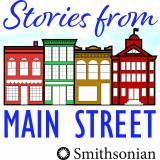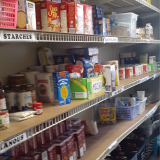Helping Each Other in Gentry, Arkansas
Story Narrative:
Students at the Gentry Intermediate EAST Students in Gentry, Arkansas, worked with the Gentry Public Library to produce short documentaries about everything from protecting local skies during the 1950s' Cold War era to supporting the library and feeding hungry families.
Media Files:
-
Hear Gentry's story (includes open captions).
-
Audio version of Gentry's story.



